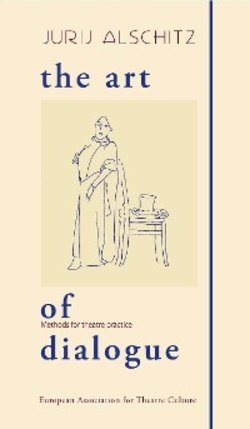Читать книгу The Art of Dialogue - Jurij Alschitz - Страница 7
ОглавлениеThird question:
How to unite your and the playwright’s views on dialogue?
After you have answers to the first question, “How do you personally see dialogue?” and “What type of dialogue is the playwright proposing?” compare them. Establish a sort of dialogue between these two different views – the playwright’s and yours. By comparing them, energy will be created. It is the energy of searching. This is already a first important step towards the birth of your own image of the dialogue.
In answering this question, you already start unwittingly to create the plan of the whole construction of the dialogue. For example: in this part of the dialogue, a pause is important; here, I agree with the playwright. And here: what’s important is the actions in the situation – I agree here, too, but here – no, I don’t agree. At this point, in my view, everything stems not from the words but from the game, and so, again, the basis for the dialogue are the words. Ask yourself the questions: When does dialogue begin according to the text, and when does it begin according to its own essence? How does it develop? Where does it come to a standstill? Where does it end? What is the revelation in the dialogue? Where can the metaphysical break-through occur? The more questions you have, the better. Taking apart and then building up your version of the dialogue in this way, you will hear and see not only a diverse and rich form of its life on stage, but you will open whole hidden riches in its meaning. But this is only one part of the work. You will only find the full answer to the third question through patient, applied work on stage. Do not hurry! Take time over the dialogue. A lot of time.
I sometimes think that time is what dialogue feeds on; it breathes time. If you cut back on time, you’ll see that it suffocates. You can’t create a dialogue by fussing over it, in a noisy environment or in a hurry. You need to pay attention to the fact that Dialogue demands different temporal dimensions, it is crowded by our calendar framework and clock faces. But, unfortunately, in today’s world, we lose patience if a dialogue happens over a long time. We need a quick result, not faith in its continuation. We are irritated by Chekhov’s impreciseness. We don’t have the patience for it. And this is all visible on stage: actors hurry, get nervous, don’t listen to one another, rush like race horses to the finishing line, towards victory. I assure you that this “quick” dialogue will not work. A genuine revelation won’t take place. In the best case, there will be a decent debate. But in any case, let’s agree that in a short debate, you can only gain temporary knowledge. Knowledge which is comfortable for the spectator and practical for him “today”. Is this what Theatre is for? I am not sure about this at all. I’m sure that true knowledge is reached only by following a long, long shared path. Only a dialogue which is heading towards the future, a dialogue with a long perspective to develop, can genuinely reveal something authentic. We need these distant horizons. And so it’s impossible to create dialogue by fussing over it, in a noisy environment or in a hurry. That much is tried and tested.
Answer the questions and go on stage. There, you’ll come across a hundred new questions. The image of your dialogue will reveal itself to you fully only on stage, and only in rehearsals with your partner. However well they might prepare, dialogue will never be revealed to one actor or to one director. Dialogue is between two. It is in many ways a personal issue between two. Trust each other as yourself. You need your own dialogue. Otherwise you won’t manage anything, ever. The way you play the dialogue, with this particular partner, cannot be played with another person, even if it’s with the most wonderful actor. You will never manage to repeat your dialogue with them. And anyway it’s not possible to repeat dialogue. You will always need to create it afresh. The image is created by you + your partner. It is created by you + the playwright. You + the spectators. You today + you tomorrow. So take care that your dialogue is always you + someone/something else.
They say that when a person comes around, after fainting, the first thing he starts to understand is whether there is someone next to him or not.
